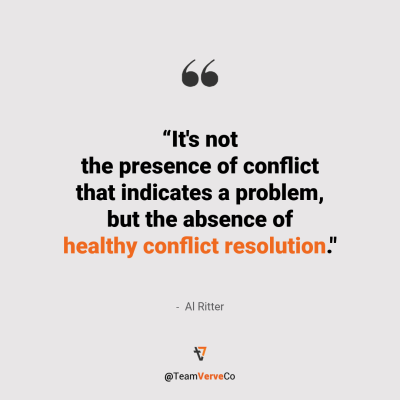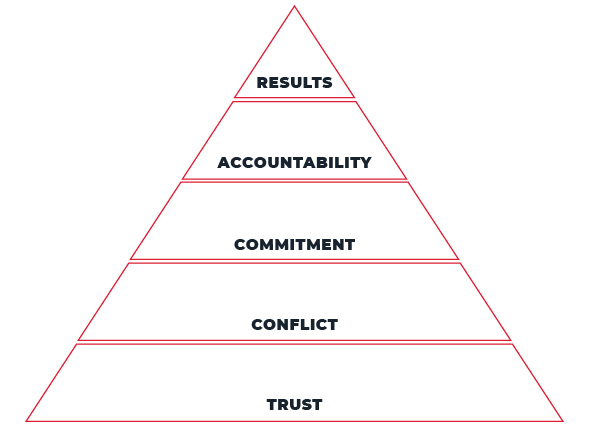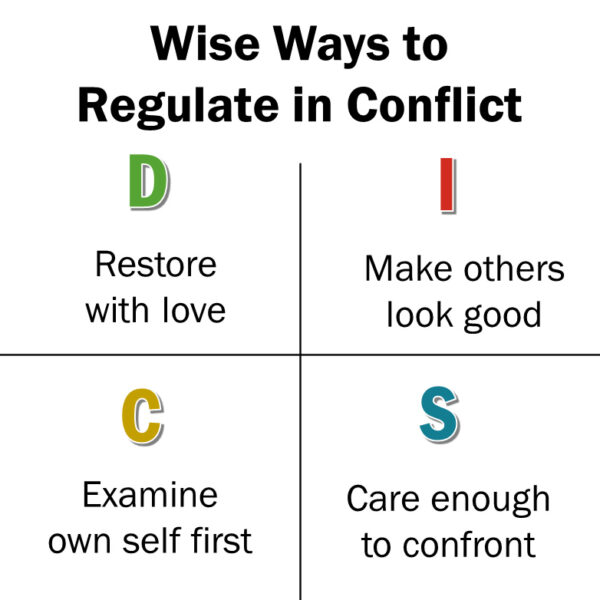Cycle of Conflict: Three True Stories
Did you know that healthy conflict—and healthy conflict resolution—make teams better? Successful conflict builds teams that make crucial decisions despite differing opinions! We don’t always have control over the conflict around us, but we can learn and use healthy conflict response strategies.
Team Vocal Volley and Team Fragile Frays
Years ago, I worked for a company (let’s call them Team Vocal Volley) where our boss frequently created unhealthy conflict. He would get into shouting matches with employees, and the insults flew freely. It was an unhealthy company culture and a stressful work environment, to say the least.
Another team I joined (Team Fragile Frays), everyone tiptoed, afraid to speak up about issues. Silence replaced visible conflict. This conflict avoidance, hoping issues would miraculously disappear, did not create a healthy culture or enjoyable workplace.
In both of these cases, conflict turned personal. Misunderstandings, personality clashes, and perceived slights disrupted team productivity. The cycle of conflict continued, perhaps because no one understood healthy conflict response strategies.
Yet some teams understand that positive momentum can be created by the necessary friction between diverse ideas and approaches!
Healthy teams embrace and harness tension, but this requires trust.
The way we interact with this necessary conflict is important. There’s necessary friction between our car tires and the road. Without necessary friction, motors can’t run and brakes are useless.
Similarly, without necessary friction—like productive, enthusiastic, honest debate around ideas and important matters—teams can’t move forward. Instead, they’re stuck in mediocre territory!
Effective teams practice healthy conflict response strategies often and become better co-workers because of it. But…it occurs only if there is vulnerability-based trust.
Team Trust Troop
Back to our stories. At one point, I became part of a third team, Team Trust Troop, an organization that ran multiple programs to serve many legitimate needs. Naturally, this led to passionate debate about our use of time and resources.
We had to clarify our purpose and prioritize accordingly.
Not surprisingly, this healthy approach to conflict resolution led to positive outcomes!
When teams have healthy conflict—sans ego and defensiveness—mutual trust and respect guide the conversation, and opposing views can be considered.
“You can disagree without being disagreeable.”
– Zig Ziglar
Identifying Types of Conflict
What pops to mind at the word conflict?
Perhaps negative concepts like meanspirited, ugly, power struggles, and war?
One Webster definition is, “To fail to be in agreement or accord.”
When you work with people there will be conflict. The million-dollar question is, Will your team spiral out of control in the cycle of conflict, or will you learn to regulate and negotiate conflict with success?
Break the Cycle of Conflict
In life and work, conflict often occurs not because someone was trying to do us wrong, but because they were approaching life by a different set of expectations.
Often, we don’t realize we’re playing by different expectations until confusion and frustration arise. We’re probably reacting to the conflict by then—either inwardly…or outwardly.
Different Personalities Approach Conflict Differently!

Understanding how different personalities approach conflict builds awareness and helps break the cycle of conflict.
It’s possible to manage conflict productively by regulating and adapting our own conflict responses. This may de-escalate situations quickly and help all parties regain equilibrium to consider options and agree on next steps.
- For example, if you are prone to withdraw or checkout during conflict, find ways to engage in a more active, positive way.
- If you naturally attack or blame in a conflict situation, instead engage in a more caring way that doesn’t create alienation.
Further, we can become bridge builders and master negotiators in conflict situations.
When we come to conflict with this type of a win-win approach, we view our conflict through the other’s eyes, talk with them in ways meaningful to them, and consider positive conflict management strategies that benefit all.
DISC and Conflict Resolution
At Team Verve, we often use the DISC model to jumpstart conversation.
Our DISC traits show up in conflict. In challenging times, we choose to be constructive or not. Understanding our predispositions can help us choose a healthy path—
D’s can either go on the attack OR restore with love.
I’s can expose others’ faults OR make others look good.
S’s can dodge the issues OR care enough to confront.
C’s can want to criticize OR examine self first.
How would you like your team to function in the heat of the moment?
Plan for Developing Healthy Conflict Resolution Strategies
Jay Samit said, “Conflict is not the end of the story. It’s often the beginning of something better.”
At Team Verve, we believe that your team can develop HEALTHY conflict resolution strategies and turn your team’s friction into fuel for success.
Our high-energy, interactive, practical “DISC Conflict Strategies that Work” workshop has 5 goals:
- Understand conflict responses
- Learn how to effectively approach people during conflicts
- Cultivate honesty
- Reduce team stress
- Negotiate with success
Do you have questions about how DISC can help with healthy conflict response strategies for teams? Drop a line below or chat with Matt. We want to connect with your team!
Team Verve, NYC






